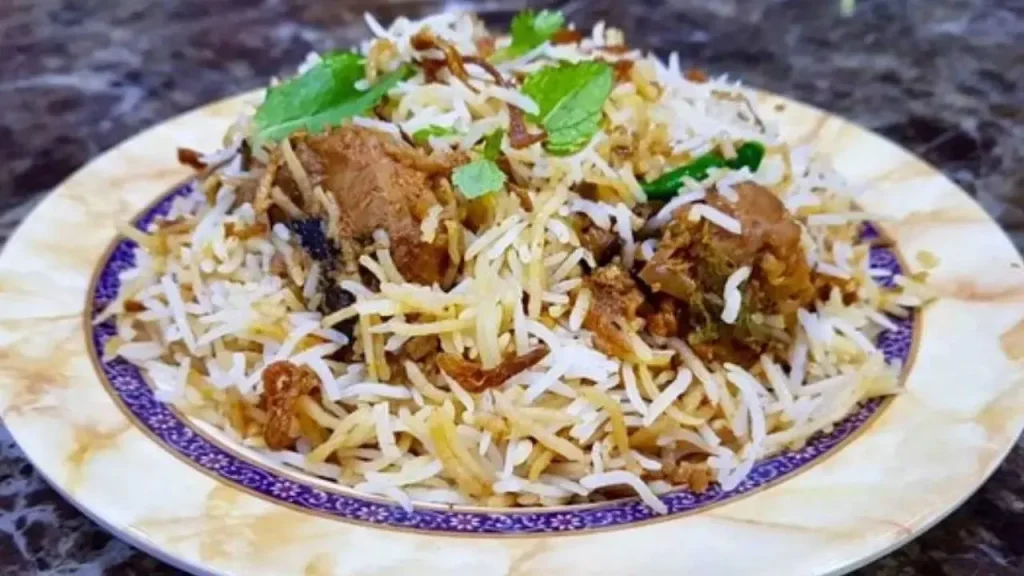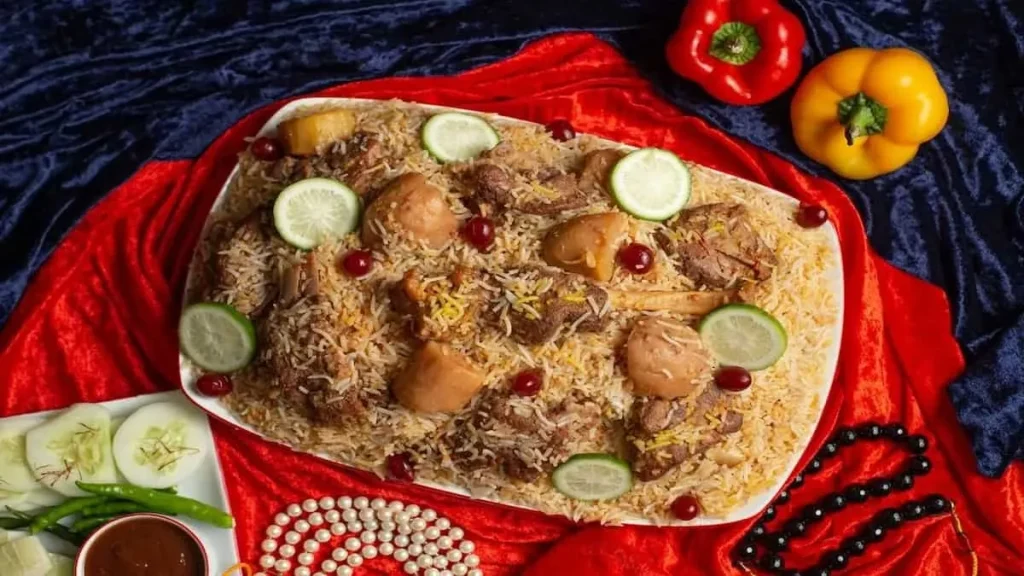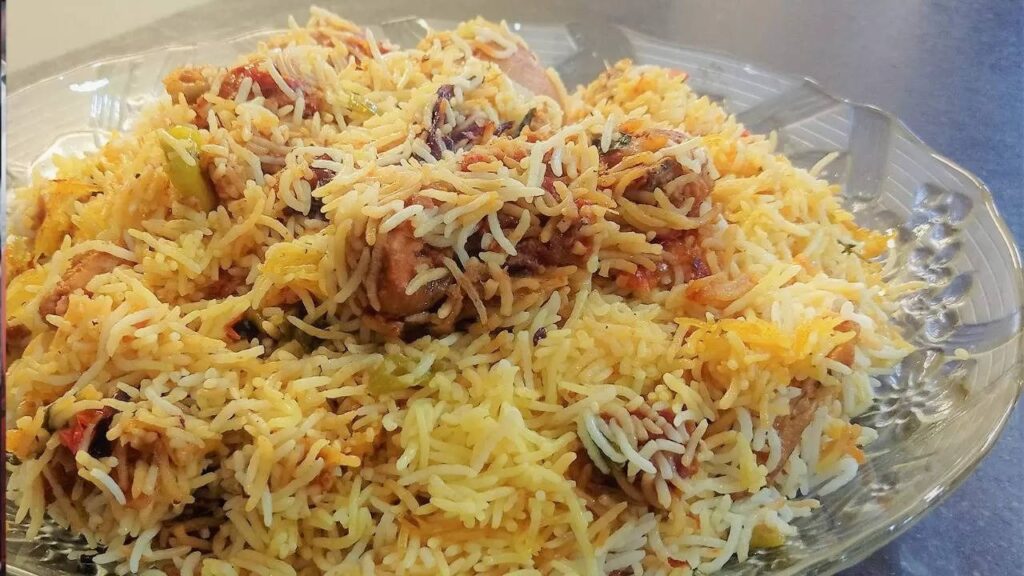Kalyani Biryani traces its origins to the 18th century when the Kalyani Nawabs migrated from Bidar to Hyderabad. Their haveli, Kalyani Nawab ki Deori, became known for its grand hospitality, serving lavish mutton and chicken biryanis to travelers.

The Transformation After 1948
Following Operation Polo in 1948, the Nawabs lost their wealth, leading to a crucial adaptation. To sustain their tradition of feeding visitors, they replaced costly meats with buffalo meat, creating a more affordable yet flavorful version of their biryani.

Unique Cooking Style
Kalyani Biryani is made using small buffalo meat cubes cooked with aromatic spices like ginger, garlic, red chili, turmeric, cumin, and coriander. The meat is slow-cooked in a rich curry before being layered with rice and finished using the traditional ‘dum’ method.
The Rise of Street Vendors
A former Nawabi cook, Dawood, popularized the dish in the late 1940s by opening ‘Original Kalyani Biryani’ in Murgi Chowk near Charminar. Soon, other former royal cooks followed suit, establishing small eateries across Hyderabad.

An Affordable Legacy
Unlike the premium-priced Hyderabadi dum biryani, Kalyani Biryani remains budget-friendly, often priced around ₹80 per portion. These humble eateries, usually without signage, cater to students and working-class patrons.
A Dish With Social Stigma
Despite its rich taste and history, Kalyani Biryani remains underground due to buffalo meat consumption being a sensitive topic in parts of India. Many restaurants avoid listing it on their main menu to prevent customer backlash.

‘Kalyani’ as a Code Word
In Hyderabad, ‘Kalyani’ has become a term referring specifically to buffalo meat dishes. However, it does not mean beef (cow meat), highlighting the linguistic nuances shaped by social and political factors.
Decline and Survival
While some historic outlets have shut down, a few continue to keep this unique culinary tradition alive. Those still serving Kalyani Biryani remain vital links to Hyderabad’s lesser-known yet significant food heritage.

A Taste of History
Despite its challenges, Kalyani Biryani stands as a symbol of resilience, cultural adaptation, and authentic flavors that have withstood the test of time.
